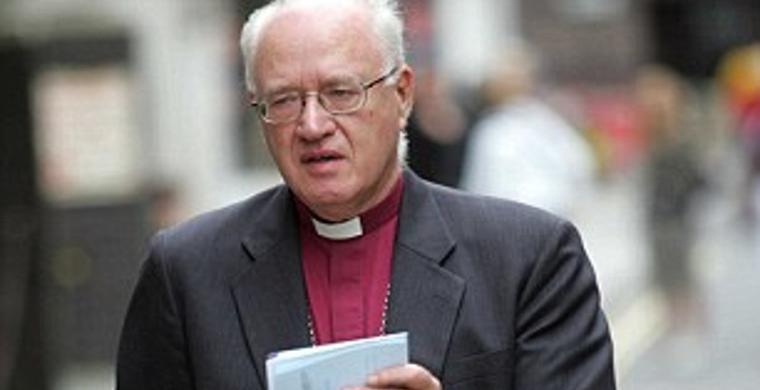Former Archbishop of Canterbury Blasts Bishops over Cummings Controversy
Controversy is ridiculously overblown, says George Carey
Hysterical, coarsened and divisive nature of debate is creating a dangerous culture war that could harm civic life, he says
By George Carey
May 31, 2020
"Last weekend I felt thoroughly dispirited by the fact that in the midst of a global war against an invisible killer which has stopped freedom of movement, worship and even work, the only subject people were discussing was the comings and goings of the Prime Minister's chief adviser. And to make it even worse, just as this adviser and his family were being harassed in their own street by apparent neighbours and activists, some bishops piled into the fight.
I have no idea why they chose to intervene. This controversy is ridiculously overblown. Mr Cummings is not an elected official. He reports to the PM, who has heard his explanation and has decided to stand by him. The PM is, however, accountable in Parliament and to the people through the ballot box. And it is not that I have any strong opinion on Mr Cummings and whether he transgressed the letter or even the spirit of the law, but that I am much more concerned about the hysterical, coarsened and divisive nature of our debate which is creating a dangerous culture war that could harm civic life.
In choosing to express their disapproval on Twitter and joining a storm of hatred and controversy, I believe the bishops have done themselves and the Church a disservice. Some attacked the integrity, morality, leadership and character of the PM in highly personal terms. I have never seen such partisan pronouncements by church leaders.
These interventions will have done the Archbishop of Canterbury no favours. It is he who has regular meetings with Boris Johnson and his ministers, and will have to undo some of the damage that has been done. I ministered to three Prime Ministers, Margaret Thatcher, John Major and Tony Blair, and it was possible to have robust and polite disagreement -- in public and in private. But I also had a pastoral relationship with them, and occasionally they would share difficulties and seek impartial advice.
This is not to say that the Church must simply bless what governments do. Bishops have a serious, prophetic ministry to offer our nation, founded upon a gospel of love and respect. There should be a challenging relationship. In the late 1980s for example, when the Church of England produced the ground-breaking report 'Faith in the City', the bishops were described as 'Marxists' by one government minister, but they never repaid the insult in kind.
The work involved could never have been summarised in a 280-character tweet. This was the painstaking effort of two years of a high-powered commission which powerfully described the plight of a poverty-stricken underclass in UK inner cities. Though the report led to a short-term 'row' between church and state, it altered government policy.
My predecessor, Archbishop Robert Runcie, addressed the divisive politics brought about by opposing groups lobbying the Church. "Lobbies have their place," he told General Synod, "But the Church of England cannot be taken over by them. There is no escape from the need for reasoned, persistent, patient work on the issues."
I suggest that something of that painstaking work on the issues raised by Covid-19 is surely required from the bishops, rather than kneejerk tweets.
I cannot help but sympathise with ministers, advisers and civil servants as they deal with a nightmare situation which confronts us all. In the developing world, lockdown has brought starvation, mass unemployment and even mass migrations. In the UK, I have never seen anything like it, and as a child I lived in London in the last world war and have seen some terrible things.
I would have liked church leaders to address with hope and faith our existential fears about this virus. Where has the Church stood on the effect of this crisis on vulnerable and chaotic families who have no access to outside space, or to online learning, or sufficient nutrition for their children? More important, what are the bishops saying about the character of a loving God who cares for his creation?
Many local ministers and priests have offered powerful, sacrificial service to the poor and depressed struggling in isolated lockdown. But with the doors of the churches closed, many church leaders have been absent from public debate. Have we nothing confident to say to our world?
I think we have. In the words of George VI at the outbreak of war: "Go out into the darkness and put your hand into the Hand of God: That shall be to you better than light and safer than a known way".
The Most Rev. George Carey is the former Archbishop of Canterbury














